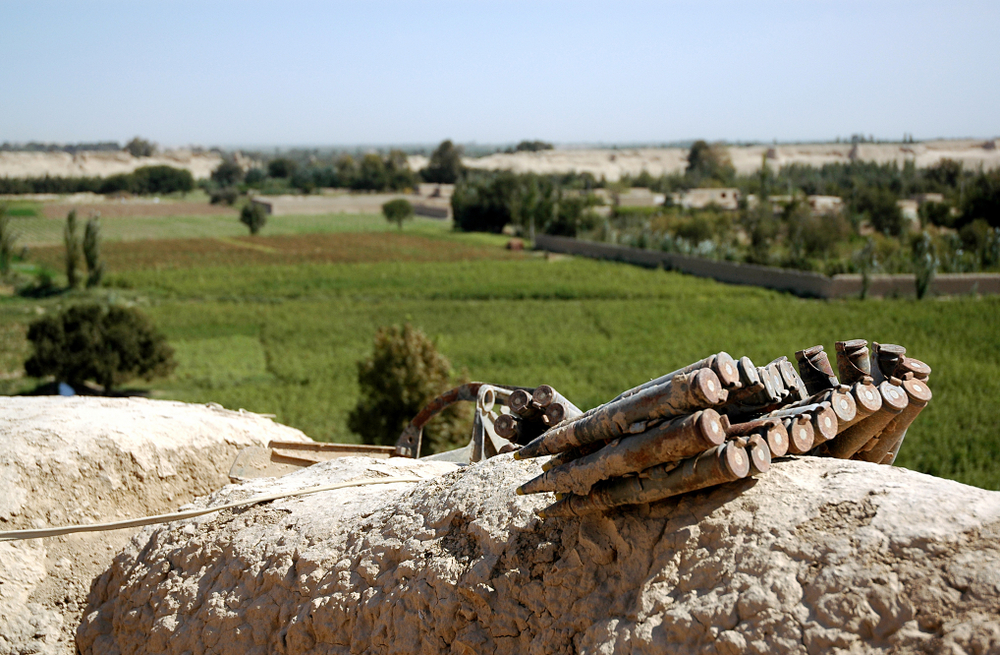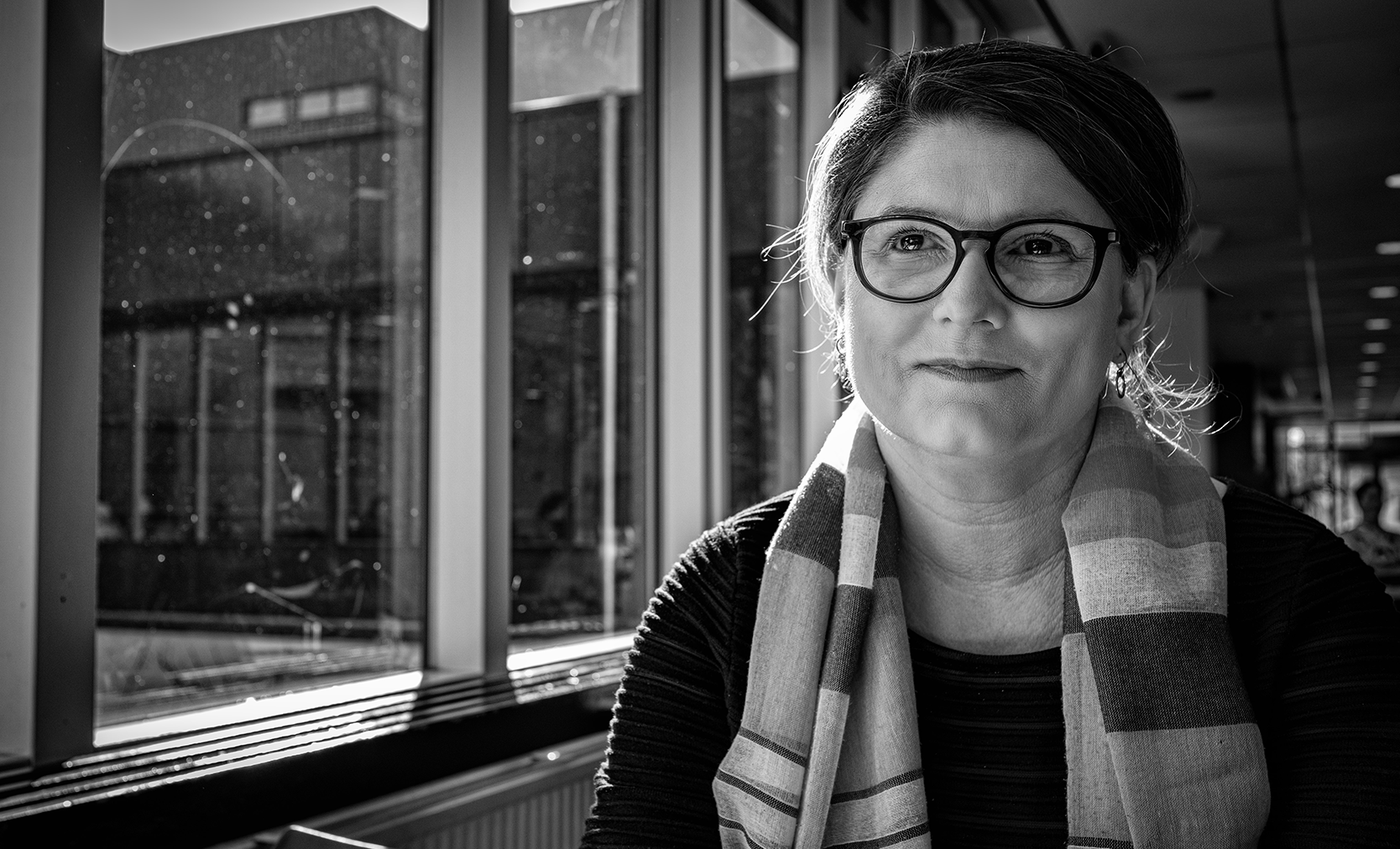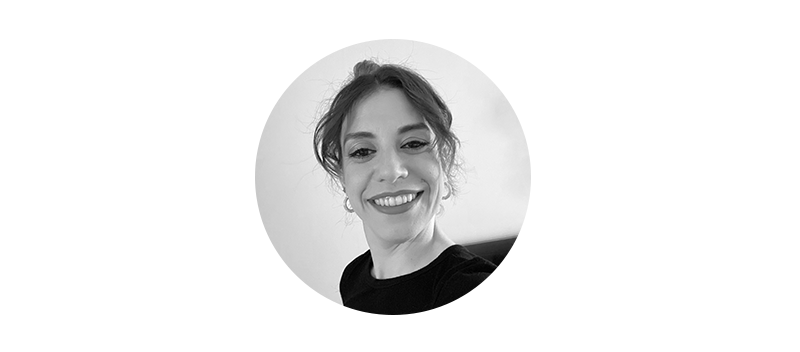The men in their year have long since graduated. At the same time, the 36 female students of the Afghan NAEC agricultural college that was founded with help from WUR still do not know how and if they will ever be able to complete their education. How did this situation arise, and are there solutions? A long read (reading time: 5 minutes).
The female Afghan students sent an urgent letter to the Dutch House of Representatives last week. Minister Schreinemacher of Foreign Trade and Development Cooperation faced critical questions the day after. Minister Hoekstra of Foreign Affairs may expect the same when his ministry’s budget is discussed today (Wednesday).
Questions abound
Hans van Otterloo, who was the WUR NAEC project manager in Kabul until recently, also has plenty of questions. He is still in close contact with NAEC people, although he no longer lives in Afghanistan. ‘Minister Schreinemeier declared that the security risks for women wanting to complete their studies are simply too great. However, this does not match the information I am receiving from Kabul’, he states.
According to him, there are no real changes compared to last March, when the male students had already been back in school for a while and a solution, supported by the Afghan government, was in sight. But, as is customary in regions of conflict, the implementation was slow, first due to the Taliban’s indecisiveness and later due to Dutch agencies’ sluggishness. And, while the project’s termination date fast approached, a solution for the women was yet to be effectuated.
Formally versus morally
As of 31 October, WUR no longer has any formal contractual dealings with the NAEC. But Malika, Fatima, Tahira, Larzana and 32 other Afghan women are still in the same situation as a year ago. With only two semesters to go until graduation, there is no one to provide education or conduct exams. A driving force appears to be lacking. The NAEC has given the women a certificate for successfully completed courses, says the Wageningen Centre for Development Innovation (WCDI, see box). Moreover, they will be given a letter of recommendation so that they may resume their education if NAEC makes a new start or if they want to enrol at a different school that offers education for women. But, says Van Otterloo, that is hardly a solution.
Can something be designed to enable the women to complete their education?
Van Otterloo: ‘In March, we had a solution that would have made this possible. According to Minister Schreinemacher, the current situation is too dangerous to effectuate it. However, this is at odds with the information I am getting from my Afghan contacts. There are risks, of course, but according to my local contacts, the threat level has not changed since last March. The question is, upon what information the Minister bases her assessment. An article in Volkskrant suggests it comes from WUR.’
Are the risks fewer in reality? ‘I know the Afghans involved well. They are ordinary citizens, not risk-takers. Safety has always been a priority in this project. If they say it is possible, then who are we to say it is not? The women themselves say they wish to return to school, and their families give permission. They really won’t let their daughters go out onto the streets if it is unsafe.’
If they say it is possible, then who are we to say it is not?
‘The fact is, a few years ago, the number of bombs was much higher than it is now. But at the time, supporting women’s education fit in well with the Dutch narrative. Since the Taliban took over, that has changed. The discussion has an unpleasant undertone. The fact that Dutch agencies feel they are better equipped to assess the risks seems rather arrogant. The women are deprived of a choice ‘for safety’s sake’, while it is they, not we, who are at risk! Politicians appear to value appearances more than the fate of these 36 women.’
Is there anything WUR can or should do?
‘Formally: no. The contract expired on 31 October, and with it, so did WUR’s official role. Whether WUR has a moral obligation to help these women? Personally, I would say yes, but not all parties are of the same opinion. Wageningen’s enthusiasm for the project was always limited, and the chaotic circumstances in Afghanistan did little to increase it. I have not seen much compassion lately.’
So, is this it for the women? According to development organisation Spark, only 150 thousand euros will cover the costs of enabling women to complete their education.
‘What needs to happen now is for Foreign Affairs to enter into a contract with the school in Afghanistan. Or, failing that, with an NGO willing to act as a financial intermediary. There will be a few willing to do so. The women have only two semesters left before graduating. This must be achievable. Minister Schreinemacher said she wants the different options analysed before the end of the year. But that means another two months will pass before the women have any certainty.’
What would be lost should the NAEC be forced to stop its activities?
‘For the 36 women, it would be a personal tragedy. That goes without saying. As far as the institute is concerned: I knew it would not be forever when I started. At the time, I said, “if it lasts ten years and we manage to educate tens of thousands of people, I will be happy.”—a statement with predictive value, in retrospect. Over the last decade, numerous people have been educated, and a completely new teaching programme has been rolled out in 150 schools. Much has been achieved. Still, terminating the NAEC robs Afghanistan of its ability to improve agricultural education. And unnecessarily so: the Islamic Development Bank has already agreed to provide co-funding if the Netherlands remains involved. I hope this can be done. Although in my personal experience, the Netherlands does not abound in loyalty towards those to whom we say we are committed.’
NAEC: background in a nutshell
The National Agriculture Education College (NAEC) is an Afghan teacher training programme for agricultural education. The programme started successfully in 2009 in a bid to stay ahead of the politically sensitive Uruzgan discussion. Funding was rather complicated: funds from the Ministry of Foreign Affairs were transferred through the Ministry of Agriculture, and funding from the DLO-subsidy provision was added, directly assigned to WUR, to cover the costs of vocational training.
Initially, the project was executed by Van Hall Larenstein in collaboration with WUR. In 2011, the Wageningen Centre for Development Innovation took over. Management of the project became more complex after 2013 when none of the organisations involved were permitted to travel to Kabul due to the formal termination of the NATO training mission. The Dutch partners became entirely dependent on external consultants, which did not benefit the enthusiasm for the project, says Hans van Otterloo, until recently the NAEC project manager in Kabul on behalf of WUR.
When the Taliban seized power in Afghanistan in August 2021, the NAEC was forced to close. A few teachers and other key officers fled the country. In October, the male students were able to return to school. For the women, education has yet to be resumed. ‘At the start of this year, everything was ready for blended education for women’, says Hedwig Bruggeman of WCDI. ‘Until the Taliban authorities announced that a decision on whether or not this type of education was to be permitted for women would be made shortly. In consultation with all involved, the plans were frozen until such a decision was made. To date, the local authorities have failed to provide clarity.’
Women’s rights and gender equality feature prominently in the long-term perspective on Afghanistan, which the Dutch ministers submitted to the House of Representatives this summer. The Netherlands will ‘not abandon vulnerable groups such as women and girls after two decades of intensive involvement’, the Volkskrant paraphrased. The same newspaper states that the Netherlands invested over 26 million euros in this school since 2009. According to Van Otterloo, 29 million. Some 1150 Afghan teachers have graduated from the NAEC so far.
The WCDI states that in this concluding stage, there are still weekly (online) meetings with the NAEC board in an effort to wrap up meticulously. Another topic of conversation is how the WCDI may support the students. ‘We have a constructive relationship with the NAEC board. We also aim to constructively contribute to Foreign Affairs’, says Bruggeman.

 Munition abandoned by the Taliban in the fields of Balkh, northern Afghanistan. Photo Shutterstock
Munition abandoned by the Taliban in the fields of Balkh, northern Afghanistan. Photo Shutterstock 

